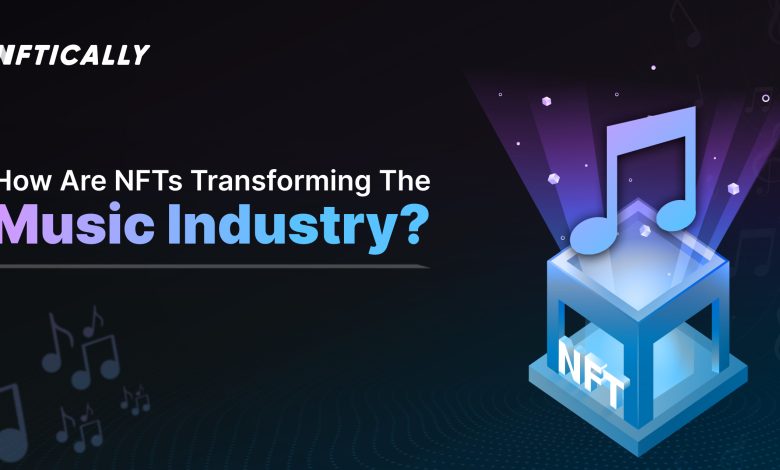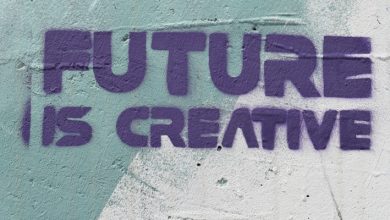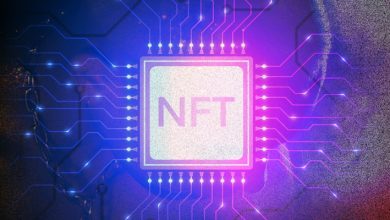NFTs in Music Industry: Tokenizing Intellectual Property

- Understanding NFTs and their impact on the music industry
- Exploring the concept of tokenizing intellectual property in music
- How NFTs are revolutionizing the way artists monetize their work
- Challenges and opportunities of using NFTs in the music industry
- Case studies of successful NFT projects in the music world
- The future of NFTs in the music industry: trends and predictions
Understanding NFTs and their impact on the music industry
NFTs have been making waves in the music industry, offering a new way for artists to tokenize their intellectual property. This technology allows musicians to create unique digital assets that can be bought and sold on blockchain platforms. The impact of NFTs on the music industry is significant, as they provide artists with a new revenue stream and a way to engage with their fans in a more direct and meaningful way.
One of the key benefits of NFTs for musicians is the ability to retain ownership and control over their work. By tokenizing their music, artists can ensure that they receive royalties every time their NFT is sold or traded. This can help to address the issue of music piracy and ensure that artists are fairly compensated for their creations.
Additionally, NFTs can also help musicians to connect with their fans on a deeper level. By offering exclusive content or experiences as NFTs, artists can create a sense of scarcity and exclusivity that can drive up demand for their work. This can help to build a stronger and more loyal fan base, as fans are willing to invest in unique and limited-edition digital assets.
Overall, NFTs have the potential to revolutionize the music industry by providing artists with a new way to monetize their work and engage with their fans. As this technology continues to evolve, it will be interesting to see how musicians and fans alike embrace the possibilities that NFTs offer.
Exploring the concept of tokenizing intellectual property in music
Exploring the concept of tokenizing intellectual property in music opens up a world of possibilities for artists and creators. By leveraging NFTs, musicians can tokenize their music, allowing them to retain ownership and control over their work. This innovative approach enables artists to monetize their intellectual property in new and exciting ways, such as selling limited edition digital albums or exclusive rights to unreleased tracks.
Tokenizing intellectual property in music also provides a unique opportunity for fans to support their favorite artists directly. Through the purchase of NFTs, fans can acquire digital collectibles tied to specific songs or albums, creating a deeper connection with the music they love. Additionally, NFTs can serve as a form of proof of ownership, ensuring that artists receive proper credit and compensation for their creations.
Furthermore, the use of NFTs in the music industry can help address issues of copyright infringement and piracy. By tokenizing intellectual property, artists can establish a clear chain of ownership and rights, making it easier to enforce copyright protections and prevent unauthorized use of their music. This increased transparency and security benefit both artists and consumers, fostering a more sustainable and equitable music ecosystem.
How NFTs are revolutionizing the way artists monetize their work
NFTs have completely transformed the way artists can monetize their creations in the music industry. By tokenizing their intellectual property, musicians can now sell unique digital assets directly to their fans, bypassing traditional intermediaries like record labels and streaming platforms.
One of the key advantages of NFTs for artists is the ability to retain more control over their work and earn a higher percentage of the profits. This decentralized approach to selling music allows artists to set their own prices and terms, giving them greater autonomy and financial independence.
Furthermore, NFTs enable artists to establish direct relationships with their fans, creating a more intimate and personalized connection. Fans who purchase an artist’s NFT not only gain access to exclusive content but also become part of a community that supports and values their favorite musicians.
Overall, NFTs are revolutionizing the music industry by empowering artists to take ownership of their creative output and build sustainable revenue streams. As more musicians embrace this innovative technology, we can expect to see a shift towards a more equitable and artist-centric music ecosystem.
Challenges and opportunities of using NFTs in the music industry
When it comes to the music industry, there are both challenges and opportunities in utilizing NFTs. One of the main challenges is the lack of understanding and awareness among artists and fans about how NFTs work and their potential benefits. Educating stakeholders about the technology and its implications is crucial for widespread adoption.
Another challenge is the environmental impact of NFTs, particularly in terms of energy consumption. The high energy usage associated with minting and trading NFTs has raised concerns about the sustainability of the technology. Finding ways to mitigate these environmental effects will be essential for the long-term viability of NFTs in the music industry.
On the other hand, there are significant opportunities for artists to leverage NFTs to tokenize their intellectual property and create new revenue streams. By minting limited edition digital assets such as music, artwork, or merchandise, artists can engage with their fans in innovative ways and generate income directly from their work.
NFTs also offer the potential for artists to establish direct relationships with their audience, bypassing traditional intermediaries such as record labels or streaming platforms. This direct connection can lead to greater creative control, financial independence, and a more equitable distribution of profits within the music industry.
Case studies of successful NFT projects in the music world
There have been several successful NFT projects in the music industry that have gained significant attention and traction in recent years. These projects have demonstrated the potential for tokenizing intellectual property in the music world and have paved the way for other artists and musicians to explore this new digital asset landscape.
- One notable example is the American rock band Kings of Leon, who released their latest album as an NFT in March 2021. The band offered a limited number of tokenized albums, which included exclusive perks such as front-row concert tickets and limited-edition vinyl records. This innovative approach to album releases generated over $2 million in sales and showcased the potential for musicians to engage with their fans in new and exciting ways.
- Another successful NFT project in the music industry is the British band Gorillaz, who launched a collection of digital artwork and music as non-fungible tokens. The band’s NFT collection sold out within minutes, demonstrating the strong demand for unique digital assets in the music world. This project not only generated significant revenue for the band but also allowed them to connect with their fans on a deeper level.
- Additionally, DJ and producer 3LAU made headlines when he sold an NFT album for $11.6 million in February 2021. The NFT album included unreleased music, special artwork, and other exclusive perks for the buyer. This groundbreaking sale showcased the potential for musicians to monetize their intellectual property through tokenization and opened up new possibilities for artists in the music industry.
These case studies of successful NFT projects in the music world highlight the opportunities for artists and musicians to leverage blockchain technology and tokenization to create unique digital assets and engage with their fans in innovative ways. As the NFT market continues to grow and evolve, we can expect to see more musicians exploring this new frontier and redefining the music industry landscape.
The future of NFTs in the music industry: trends and predictions
The future of NFTs in the music industry looks promising, with a number of trends and predictions shaping the landscape. As artists and musicians continue to explore the potential of non-fungible tokens, we can expect to see a rise in tokenization of intellectual property, including music rights, royalties, and exclusive content.
One trend that is likely to gain traction is the use of NFTs as a way for artists to connect with their fans on a deeper level. By offering exclusive experiences, merchandise, and access to unreleased music through NFTs, artists can create a sense of community and loyalty among their fan base.
Another prediction for the future of NFTs in the music industry is the potential for these tokens to revolutionize the way music is distributed and consumed. With NFTs, artists can sell their music directly to fans, cutting out the middleman and ensuring that they receive fair compensation for their work.
Overall, the future of NFTs in the music industry is bright, with endless possibilities for artists, musicians, and fans alike. As the technology continues to evolve and more artists embrace the potential of NFTs, we can expect to see a shift in the way music is created, shared, and experienced.



